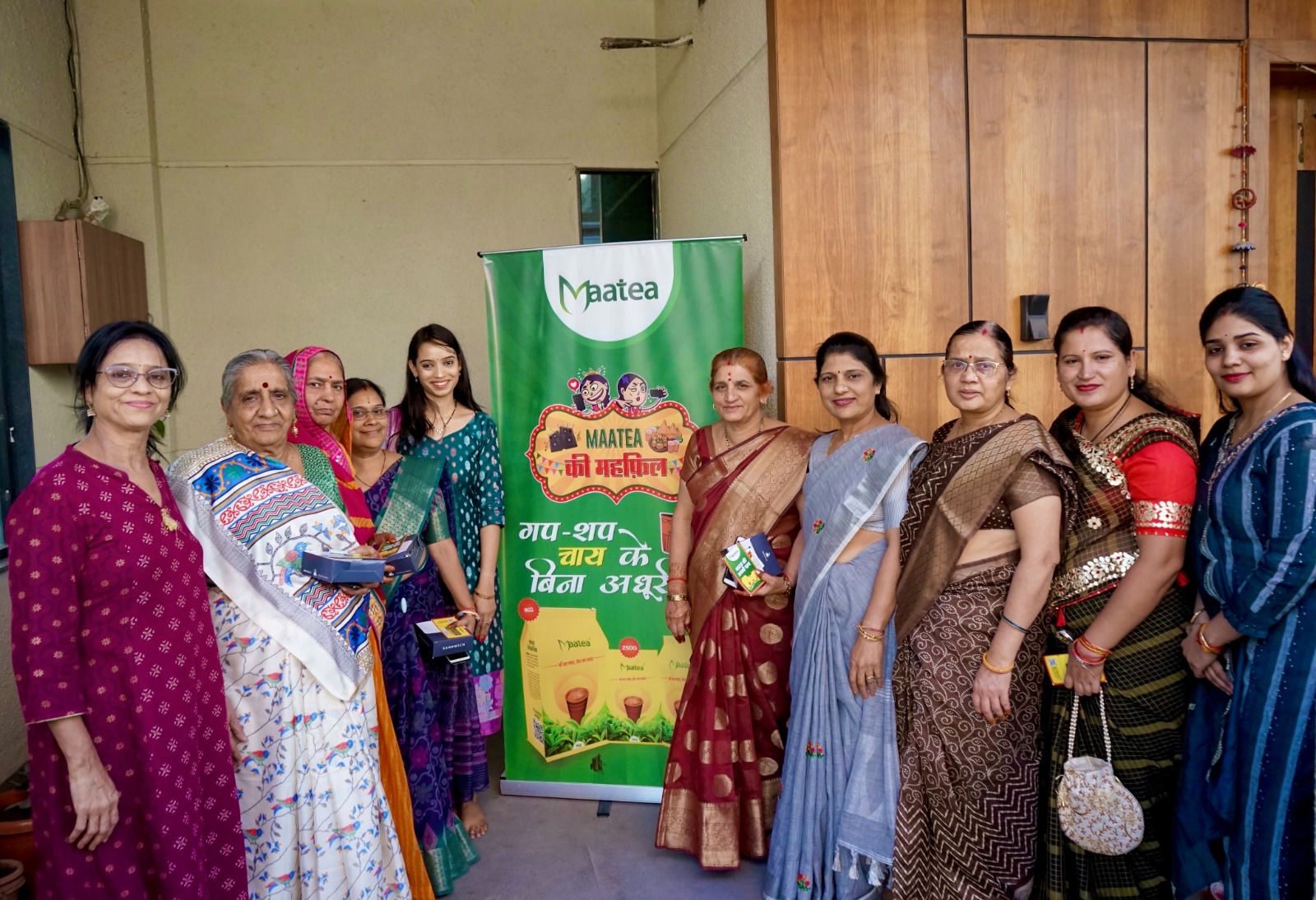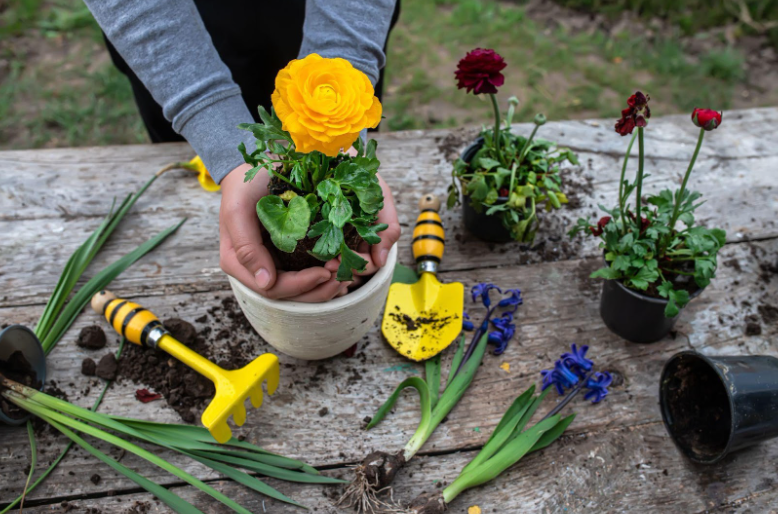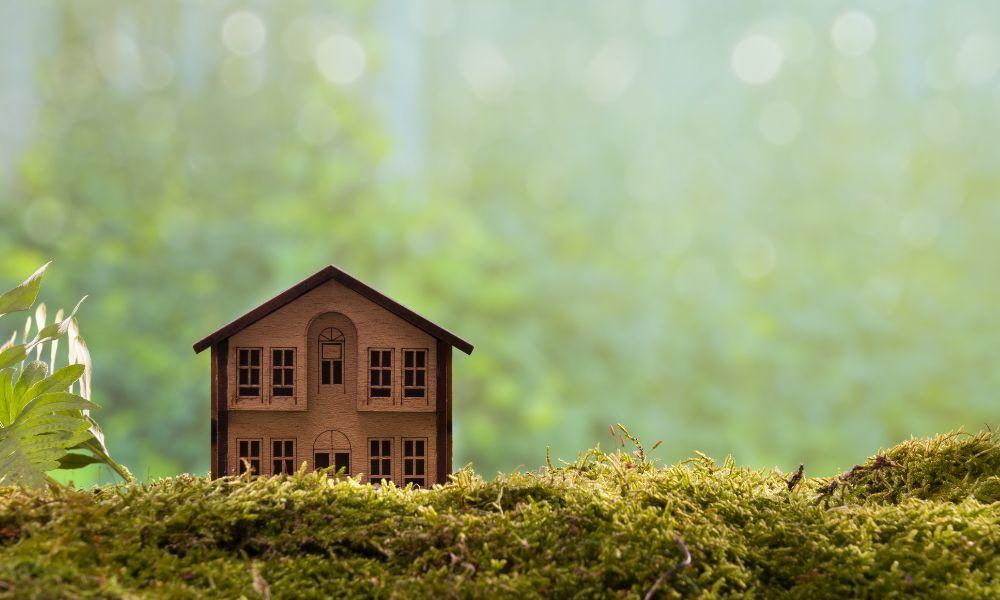Are you one of those people that just love being in the garden? If you are, you’ve probably got a bit of an eco-conscience too! Many gardeners now want to know what they can do to create an eco-friendly garden, and we’re here to help!
Today we’ll be sharing our top tips on eco-friendly gardening, from choosing eco-friendly garden products and materials to eco-friendly ways to water your garden.
Table of Contents
Eco-Friendly Garden Products & Materials
One of the easiest ways to make your garden eco-friendly is to choose eco-friendly products and materials. There are now eco-friendly options available for almost everything you need for your garden, from eco-friendly pots and planters to eco-friendly compost and garden tools.
The best way to spot if a product is eco-friendly is to look for eco-labels such as the FSC logo. The FSC (Forest Stewardship Council) logo guarantees that the product has been made from responsibly sourced wood.
You can also be more eco-friendly when buying products by avoiding plastic. Look for eco-friendly alternatives such as wooden garden products or products made from recycled materials.
Eco-Friendly Ways To Water Your Garden
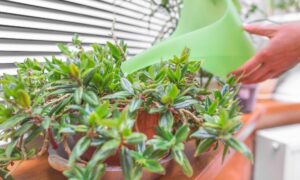
Water is one of the most important resources in your garden, and it’s also one of the most eco-friendly! There are many eco-friendly ways to water your garden, such as using a water butt or a rainwater harvesting system.
A water butt is a great way to collect rainwater from your roof that can then be used to water your plants. Many water butts now come with a tap so that you can easily attach a hose and water your garden.
Rainwater harvesting systems are a more eco-friendly way to water your garden as it collects and stores rainwater from gutters, which can then be used to water your plants. These systems can be automatic, so you don’t even have to think about it!
Our final eco-friendly way to water your garden is to use grey water. Grey water is the waste water from your home that contains no chemicals. This can be used to water your plants, but it’s important to check with your local authority first as there may be restrictions in place.
Eco-Friendly Garden Pest Control
You can also make your garden eco-friendly by using eco-friendly pest control methods. Rather than reaching for pesticides, try some more eco-friendly methods of dealing with pests, such as using eco-friendly traps or making your own pest control products.
Eco-friendly traps use a natural lure to attract pests, which are then caught in the trap. This is a great way to get rid of pests without using chemicals. You can also make your own eco-friendly pest control products using ingredients such as essential oils. We hope these tips have inspired you to create an eco-friendly garden! Remember, even small changes can make a big difference.
How To Choose Eco-friendly Plants For Bugs
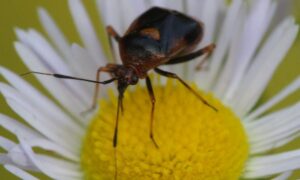
We can’t write this post without talking about one of the most important parts of your garden ecosystem – bugs and insects! These little critters are actually really important for your ecosystem, as they help with pollination and keeping pests under control.
So how do you choose eco-friendly plants that will attract bugs?
There are actually lots of eco-friendly plants that are great for attracting bugs. Some of our favourites include lavender, marigolds, and dandelions. These plants are all great for attracting bees, which, as we all know, are essential for pollination.
Another great eco-friendly plant for attracting bugs is the herbs fennel and dill. These herbs are great for attracting predatory wasps, which help to keep other pests under control.
Going The Extra Eco-Mile
Finally, some gardeners might choose to go the extra mile by adding additional eco elements to their garden. For example, solar panels that power their home or a wind turbine. While these eco-friendly additions can be expensive, they will save you money in the long run and help to reduce your carbon footprint. Not to mention, they’ll make your neighbours jealous.
Typically, a solar panel to turbine will produce as much as 1,500 kWh per year. This is the average amount of electricity used by a typical U.K. household over the course of a year. So, not only will you be saving money on your energy bills, but you’ll be doing your bit for the environment too!
Turn Your Garden Into An Eco-haven!
Whether you’re a keen gardener or just want to make some small changes, there are lots of ways to make your garden more eco-friendly. We hope this post has given you some inspiration on how to create an eco-friendly garden of your own.
Remember, even small changes can make a big difference!
FAQs
Still, got questions? We’ve got answers! Here are some of the most frequently asked questions about eco-friendly gardens that will hopefully give you the information you need to create your own special outdoor space.
What makes an eco-friendly garden?
An eco-friendly garden is one that is designed and created with the environment in mind. This might mean using eco-friendly materials, choosing plants that attract bees and other beneficial insects, or using rainwater harvesting systems to water your plants.
What is the most eco-friendly plant?
This is a difficult question to answer, as there are many eco-friendly plants to choose from! Some of our favourites include lavender, marigolds, and dandelions. These plants are all great for attracting bees, which, as we all know, are essential for pollination.
What can I use instead of pesticides?
There are many eco-friendly alternatives to pesticides, such as using traps or making your own pest control products. Eco-friendly traps use a natural lure to attract pests, which are then caught in the trap. This is a great way to get rid of pests without using chemicals. And other beneficial insects, or using rainwater harvesting systems to water your plants.
Why is sustainable gardening important?
Sustainable gardening is important because it helps to protect our environment. This might include using eco-friendly materials, choosing plants that attract bees and other beneficial insects, or using rainwater harvesting systems to water your plants.





